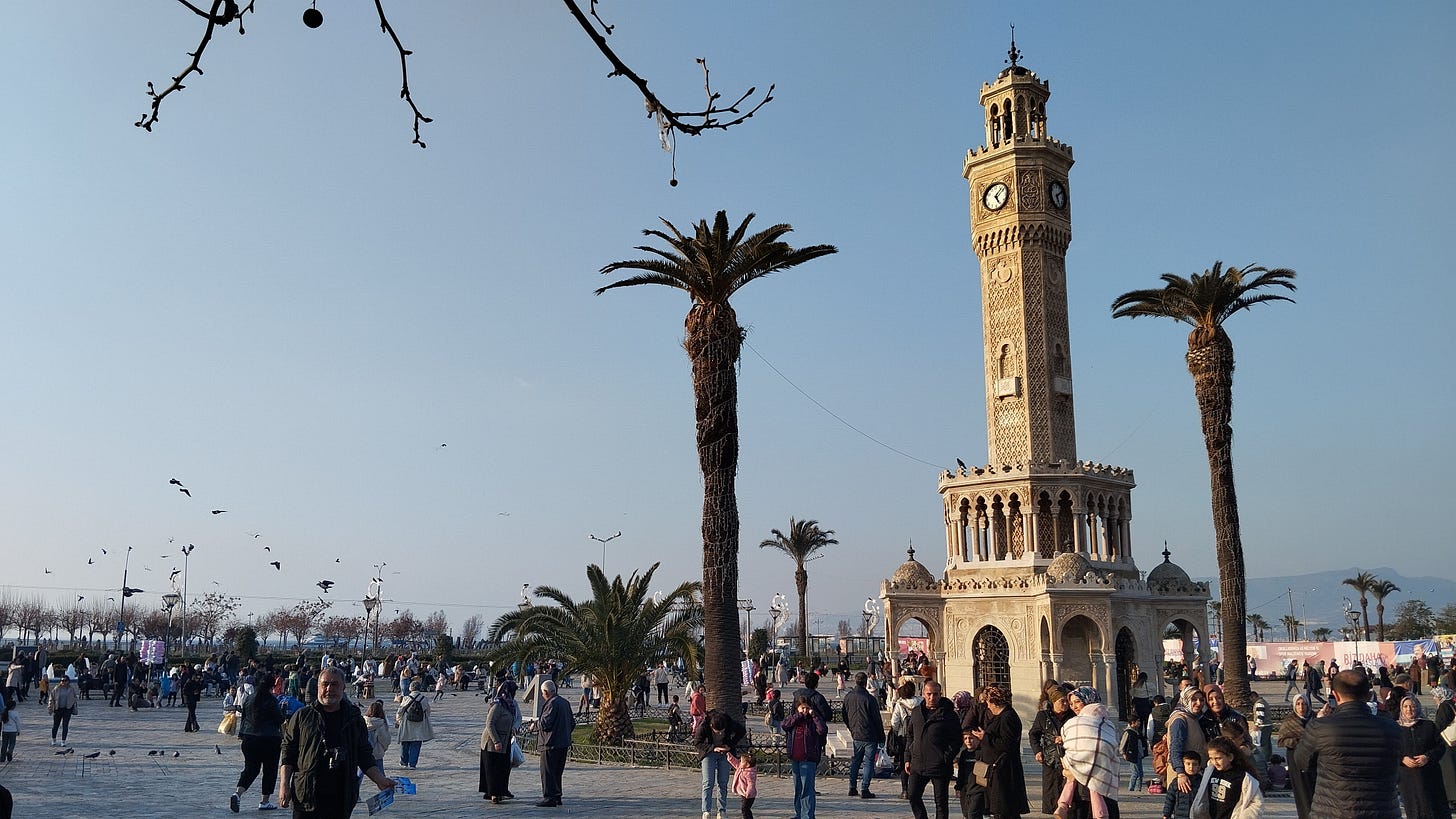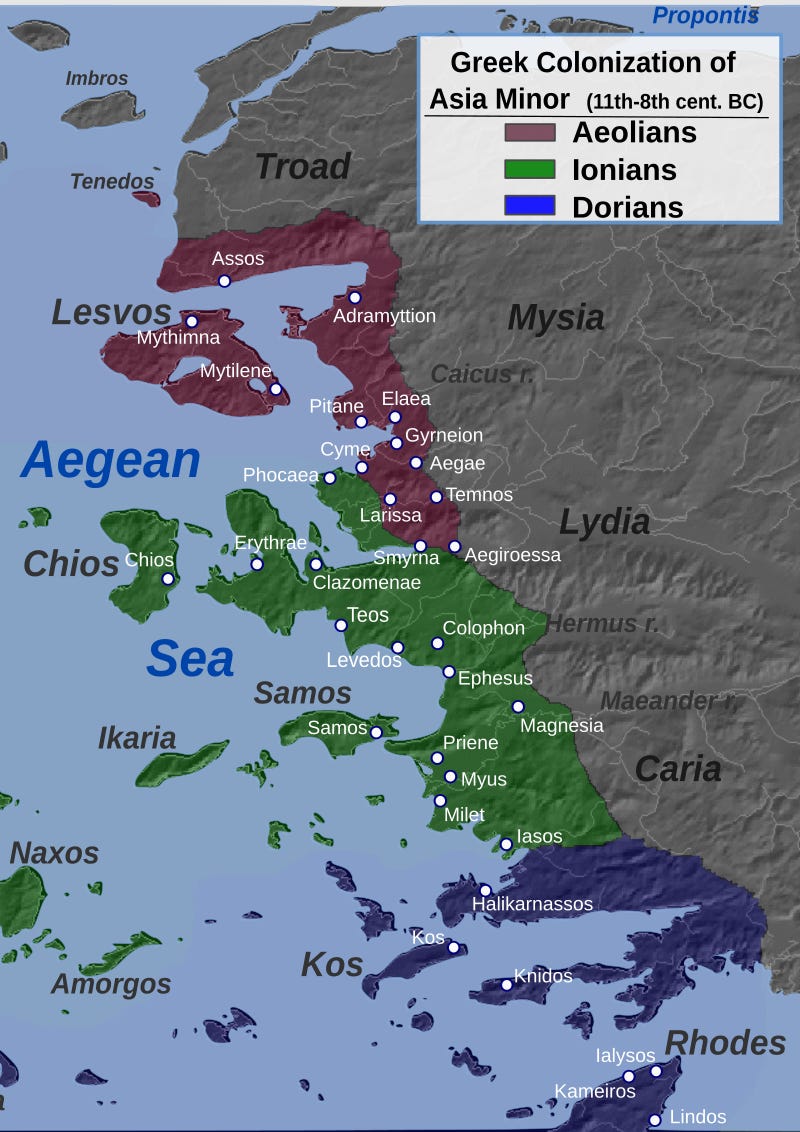Homerphilia: This Week's Weather from an Ancient Source
In his seminal book, The Histories, Herodotus describes the weather in Izmir. He's not wrong.
A few months I posted about a moment of serendipity: a reading of The Iliad with my students which mentioned the weather in late-autumn.
In recent weeks, I have begun listing to an audiobook of Herodotus’ The Histories. (I have a copy of the book, but it’s a thick doorstop of a thing, and listening motivates me to walk.)

In Book one of The Histories, Herodotus writes:
In terms of climate and weather, there is no fairer region in the whole known world thatn where these Ionians — the ones to whom the Panionium belongs — have founded their communities. There is no comparison between Ionia and the lands to the north and south, some of which suffer from the cold and rain, while others are oppressively hot and dry. (1.142)
Ionia was the region along the eastern Aegean Coastline that stretched from Smyrna down to Militus and included cities on the Izmir Peninsula (as it is known today).

I haven’t traveled widely outside of “Ionia” (modern Izmir and Aydin provinces), but I believe that Herodotus’ description holds up. The winters here are mild: rainy and cool, with a cold spell from the last week of January through mid-March. The temperatures aren’t subject to great extremes, so warming and cooling take place at throughout the year at a leisurely pace.
I’m sure the summers are hotter than when Herodotus lived in this region. Probably dryer, too. But they are perfect for holiday makers spending their days on the beach. There isn’t enough water for grass, and the wild areas are covered with scrub: thorns, thistles and holly oaks.
Aeolia, which followed the coast north of Smyrna all the way to Troy, has some nice beach towns, but it is hilly, and the temperatures are cooler. You’re likely to find green grass in that part of Turkey — not so much as to have a year-round green lawn, but a good ground cover. They experience snowfall in winter, and it is pleasant and cool most days in summer.
Herodotus himself was from Halicarnassus, which was located in Doria, the coast where the Aegean meets the Mediterranean. As he wrote, it is dryer down there, stony, hardscrabble. The costs have beautiful beaches and gorgeous harbors, but it is mountainous with steep hillsides plunging into ravines.
I write this at the end of a long and dry autumn here in Izmir. In previous years, the temperature dropped the last week of January, and temps remained in the from 0 to 10°C (30-45°F) until the first weeks of March. This year temperatures were in the upper teens C (55-65°F) until today.
Tomorrow rain will come, and wintry weather will follow. Wednesday’s low will be 0°C (32°F). One friend today blamed the Balkans for the source of the change; I’m more inclined to blame Ukraine, which lies across the Black Sea which forms the northern border of Turkey.
No matter how cold it gets … I’ll have my Herodotus to read and to remind myself that “there is no fairer region” than the one I’m wintering in right now.


